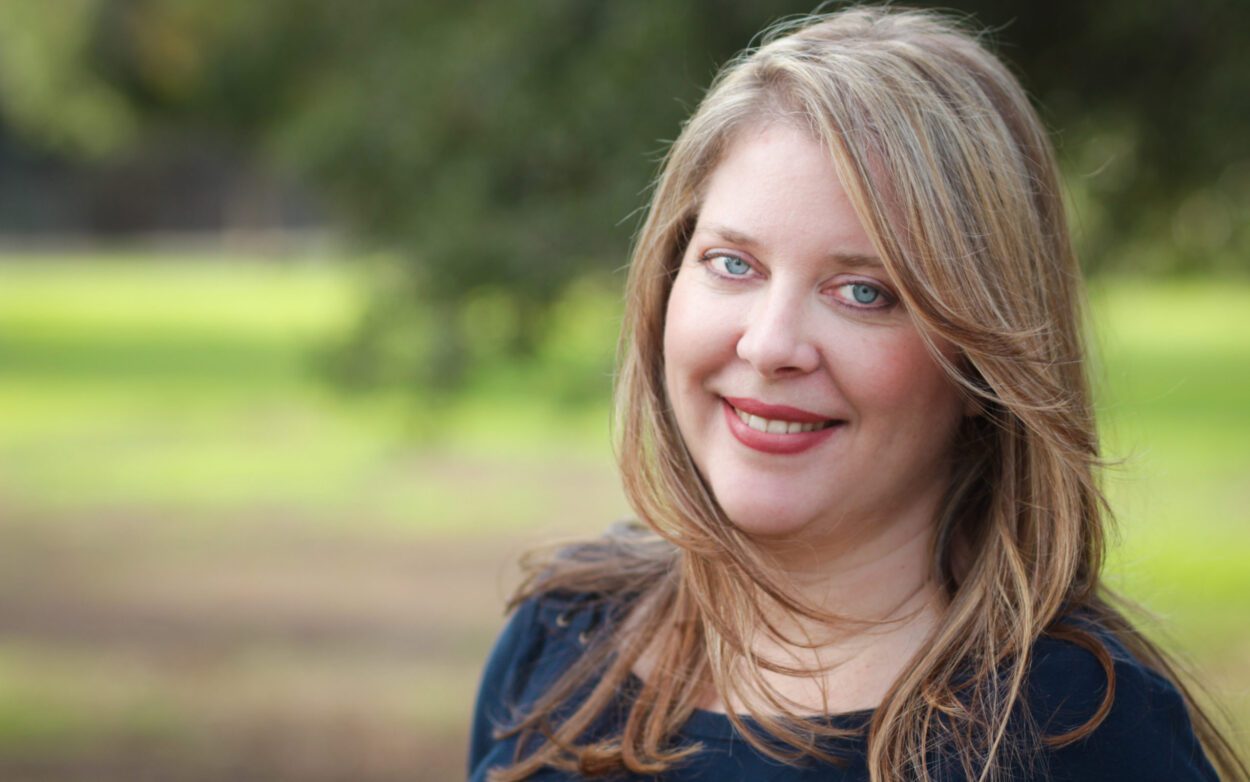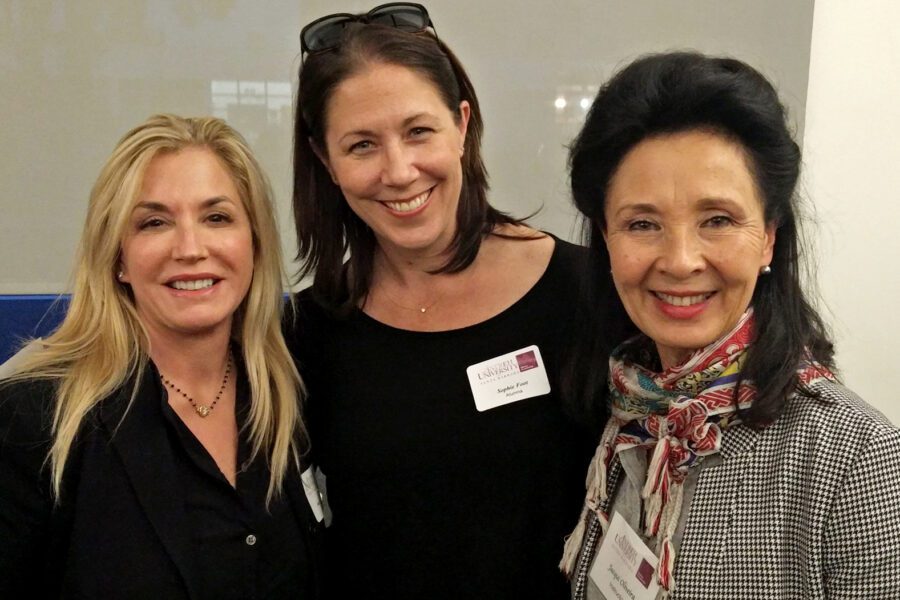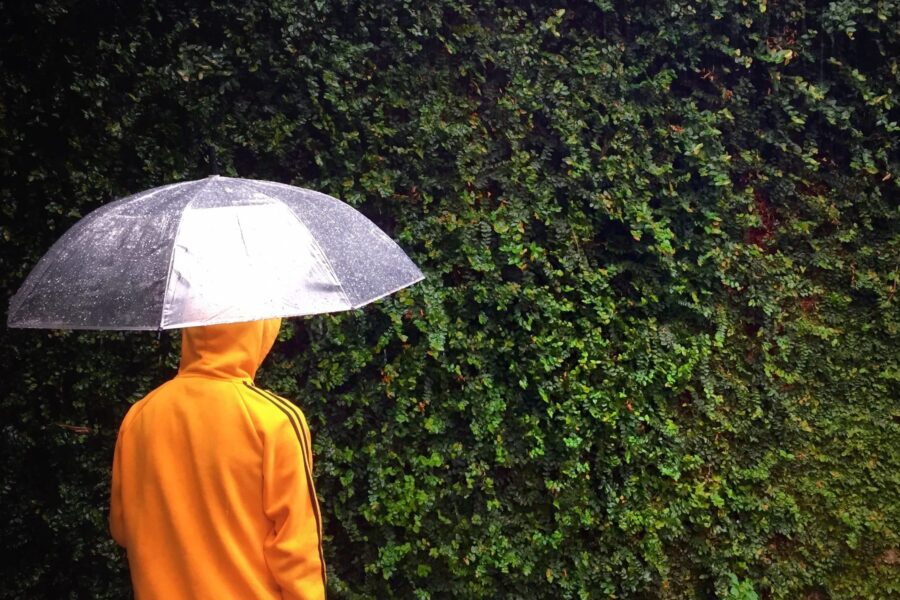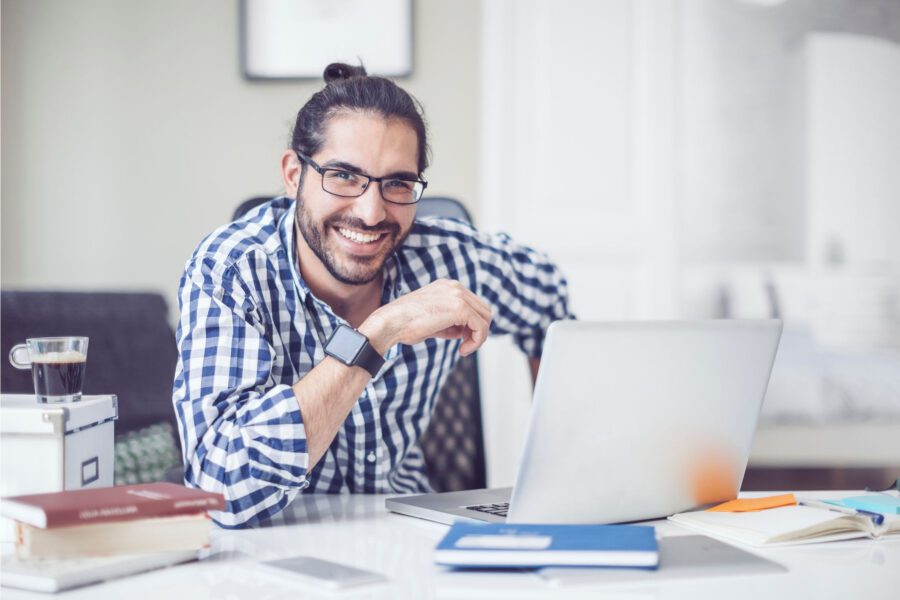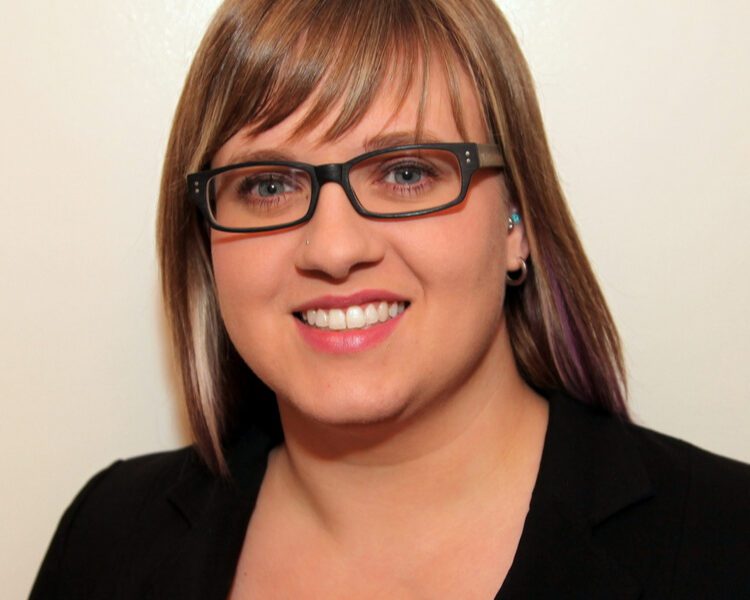Melissa Crandall, an alum of the MA in Nonprofit Management program at AULA (MANM), serves as the Director of Communications and Development for The Institute for Religious Tolerance, Peace, and Justice, as well as Director of Operations for Cancer Care Network Foundation. Crandall describes her path to the nonprofit sector as a winding one (including working as a live character actor, proofreader, and dance teacher) that has allowed her to become very clear about the values and interests that underpin her life-mission, which she is carrying out in her current work.
Tell me a bit about the mission of the organizations you work with and what you do there?
The Institute for Religious Tolerance, Peace, and Justice was founded in 2011, by Dr. Arik Greenberg, a professor of Theological Studies at Loyola Marymount University. Its mission is to promote religious tolerance, interfaith dialogue, and education about religions of the world as a pathway to world peace. We have been a small, grassroots organization that is still completely volunteer-based, and I handle the administration, finances, communications, and some of the development. Dr. Arik, the founder, and president, is also my husband; his vision for bringing peace through finding common ground is a powerful one. I also serve as the Director of Operations for Cancer Care Network Foundation, which provides resources and advocacy for cancer patients in California, mainly by helping lower-income adults pay for quality treatment. It is an interesting challenge and great educational opportunity to continuously “change hats” between two organizations that are structured quite differently, with very different purposes and missions.
What is your educational/ career background? What life events led you to your current work?
I’ve had quite a winding journey that led me to work in the nonprofit sector. Recently, I took a Strengths Profile test from the VIA Institute on Character, and my top four attributes are fairness, honesty, curiosity, and love. This certainly explains the sense of great satisfaction I feel by working in a sector that values equity and altruism!
Twenty-one years before starting the MANM program at Antioch, I received my BA from UCSB in Dramatic Arts. I had also majored in Anthropology for a while, as learning of the varied cultures of our world is a passion of mine, which I have been able to continue through exploring the dances, music, and religions of many cultures. My main, long-term position post-college was with Buena Vista Home Entertainment. Starting as a temp, I worked my way up to Account Business Manager in the merchandising services department. Working for Disney Studios was an intense and excellent on-the-job training ground, and it had great employee perks, but after six-and-a-half years I was feeling the corporate grind and took a close look at what I was doing and where I was going. I took to heart the advice from Paramahansa Yogananda to prioritize strengthening one’s inner self first; he said, “Change yourself and you have done your part in changing the world.” After the attacks struck on 9/11, although I knew the world was changing and we all felt insecure, I moved forward with my plan to take a leap of faith with no net to pursue freelancing. For five years, I worked as an eastern dance artist/teacher, Reiki healer/teacher, live character actor, and assisted a writer with her projects. I still freelance as a proofreader and helping independent writers achieve their vision of publishing. While this leap wasn’t the best decision financially, I grew and evolved in so many ways that I am sure I couldn’t have had I stayed at the daily office job, and eventually met the person I would marry.
I then began working in the organic products industry, with a small artisanal perfume and body products company. Healthy living and nutrition is another passion of mine. I worked with them for eight years as the Administrative and Human Resources Manager, also co-managing their retail boutique. Eventually, the company was going through some changes, and I had been feeling restless for quite a while. I finally realized that my path had been preparing me to spend my time, intellect, and energy, not for the enrichment of others, but to work a mission (or multiple missions). This is the fulfillment of a feeling I had had for most of my life, that around middle age I would embark on something meaningful on a grander scale.
I was so excited to be a student again when I enrolled at AULA. I took advantage of that eighteen months as much as I could; I worked minimally, getting familiar with the new gig economy, and am forever grateful that financial aid (including a partial scholarship from AULA!), my husband, and rent control helped keep me fed. The time in grad school completely opened up my horizons, gave me the opportunity to think about larger societal issues that I hadn’t had the bandwidth for before, and provided the confidence to know I could make an impact.
How did your time in the MANM program shape your goals and serve your purpose?
Sharing the classroom with others who had such a beautiful variety of experience was a great part of the education. The mentorship I received from the faculty, along with the individual attention (in small class size), helped me figure out who I was at that time in my life and where I should go with it. A goal of mine was to serve by working in the sector on the executive level, combining all of my years of work experience and my education about nonprofits to both bring me to the next level, and to be a driver for these societal changes we seek. The education and connections I received through the program helped open the door.
Where do you see yourself in ten years? How do you see society benefiting from the work you are participating in over time?
They say for nonprofits, the goal is to solve the issue and not be needed anymore. Wouldn’t it be wonderful if society moved forward in a way that all people would be kind to and understanding of one another? That affording cancer treatment is not an issue? Well, it’s likely I won’t be able to retire, but I do hope to have an impact. I’d also like to have a family and travel more, sharing cultures and experiences abroad. The peace and justice work we do may bring these opportunities with our worldwide collaborators. As I continue to reconcile my strengths with what I do in the world, the opportunity for personal and societal benefit keeps growing, and I am excited to see where it leads.

